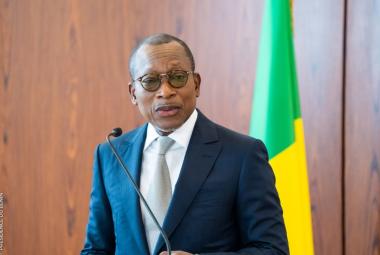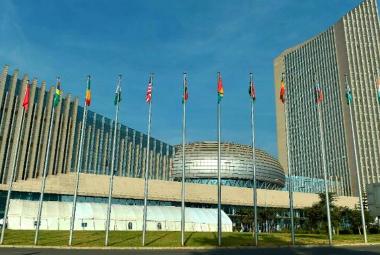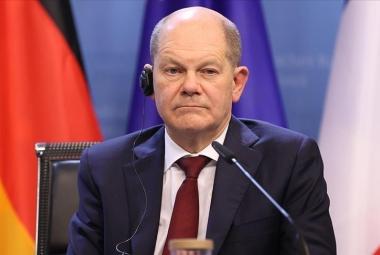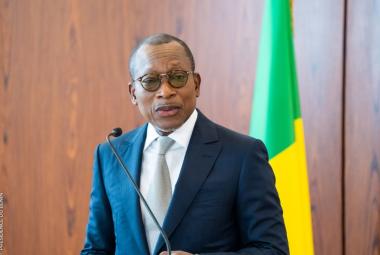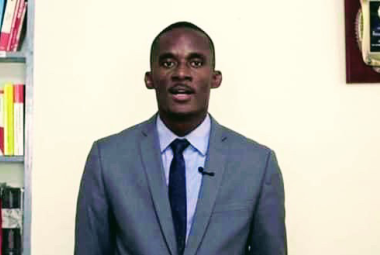Two years after its first signature between the United Kingdom and Rwanda, the British government has finally succeeded in having its highly controversial agreement on migrants voted on by both houses of the British Parliament. An Agreement of Shame, which required Rishi Sunak's Conservative Party government to go through many steps and subterfuges to achieve its objective: returning unwanted migrants from the United Kingdom to Paul Kagame's Rwanda.
Clearly, the Rwanda of the dictatorial regime of Paul Kagame spares no means in its insatiable desire for economic growth. After the slave trade that Africa experienced in the distant past, here comes the migrant trade. A trade that is changing direction and which now leaves Europe (the United Kingdom) bound for Africa. Rwanda has become, so to speak, “the frog that wants to be as big as the ox” under the dictatorial regime of President Paul Kagame. Even if it means multiplying controversial measures and actions. As long as this allows him to seek to give himself another image in the West. Just as if the 1994 genocide of the Hutu against the majority Tutsi had given him a free hand both in Africa and throughout the world.
“We are satisfied that the bill has been adopted by the British Parliament,” Yolande Makolo said in a statement sent to AFP, adding that the authorities were “eager to welcome people relocated to Rwanda”.
Rwanda, a small country with an area of 26,338 km², already has a problem housing its own increasingly growing population, which is constantly seeking to eat away at the vast territory of its giant neighbor the Democratic Republic of Congo (DRC). By supporting armed rebellions against the latter in passing, he takes the opportunity to also plunder natural resources, as much as possible. And it is this same small country which offered, against all odds, to welcome thousands of unwanted migrants to the United Kingdom on its territory. The agreement in question, first signed between Paul Kagame and Boris Johnson, aimed to return unwanted migrants to Paul Kagame's country. As one way or another to dissuade them with the prospect of finding themselves in the country of one of the fierce dictators ever known in Africa over the last thirty years. Unable to resolve its migration problem on its own, the United Kingdom, one of the greatest democracies in the world, opts to conclude a deal on migrants with one of the largest dictatorships in the world.
Following the government of Boris Johnson, it was therefore that of the Prime Minister, Rishi Sunak, who took it up to finalize it as if it were a try in a rugby match that he scored in Ultimately. Rishi Sunak and his people have therefore not found a better way, more respectful of democracy and the human person, to dissuade the thousands of migrants who often try to cross the Channel on makeshift boats bound for the United Kingdom? It is to be believed that they have come so far to decide to offer them the prospect of landing in Rwanda, where their asylum requests would be assessed.
It took a long legal-political battle between the Upper house and the Lower house. But on the night of Monday April 22 to Tuesday April 23, the bill ended up being adopted by Parliament. It targets asylum seekers who entered the UK illegally. The government of President Paul Kagame of Rwanda expressed its satisfaction through the government spokesperson.
The Minister of Foreign Affairs of Rwanda, Vincent Biruta, during a press conference, declared: “We have continued this partnership with the United Kingdom because we believe that we have a role to play in this immigration crisis clandestine.” And, as for the British Interior Minister, James Cleverly, who was at his side in Kigali, the capital of Rwanda, he declared in an exchange of good manners that he has "immense admiration for the Rwandan government, which received a lot of criticism.”
The agreement which was adopted and validated by the Supreme Court takes into account certain measures and precautions which were not initially planned. As Rwanda is not a democratic country, far from it, critics of Prime Minister Rishi Sunak and his government called for more guarantees regarding the treatment of migrants. Including the Supreme Court which got involved to demand more guarantees: “among other things, that Rwanda will not expel to another country people transferred within the framework of the partnership”. In addition to this guarantee, the new agreement adopted by the British Parliament provides, according to Alain Mukuralinda, the National Prosecutor and Spokesperson for the Prosecution, "a joint court with Rwandan and British judges in Kigali to guarantee that the security of migrants is ensured and that none of the migrants sent to Rwanda be deported to their country (…) And he will also make sure to listen to all the complaints of migrants.”
How much does it cost to subcontract migrant smuggling between Rwanda and the UK? Beyond the financial subsidies that this represents for Paul Kagame's Rwanda, what do Rwandans say about it when we know the size of Rwanda and how its own population has a vital need for space for the years to come? In which territory does Paul Kagame intend to keep these migrants over the years? And what will become of them if Rwanda does not have the right to expel them to their country of origin or to another country? And what do African institutions and Africans say about this relocation of migrants from the United Kingdom to Africa? So many questions that we are entitled to ask about the fate of migrants for whom the destination of arrival is not Rwanda or Africa.
It should be remembered that the United Kingdom is no longer part of the European Union since Brexit. And Prime Minister Rishi Sunak, whose Conservative Party wants to make it an electoral measure, declared: “No foreign court will prevent us from taking off the planes”. Not without recalling that the first expulsions to Rwanda had been blocked by European justice. However, the United Nations special rapporteurs on human trafficking, migrants' rights and torture have already warned airline companies and authorities that facilitate the flights in question that they "could be complicit in a violation internationally protected human rights”.
By Abdul Yazid




